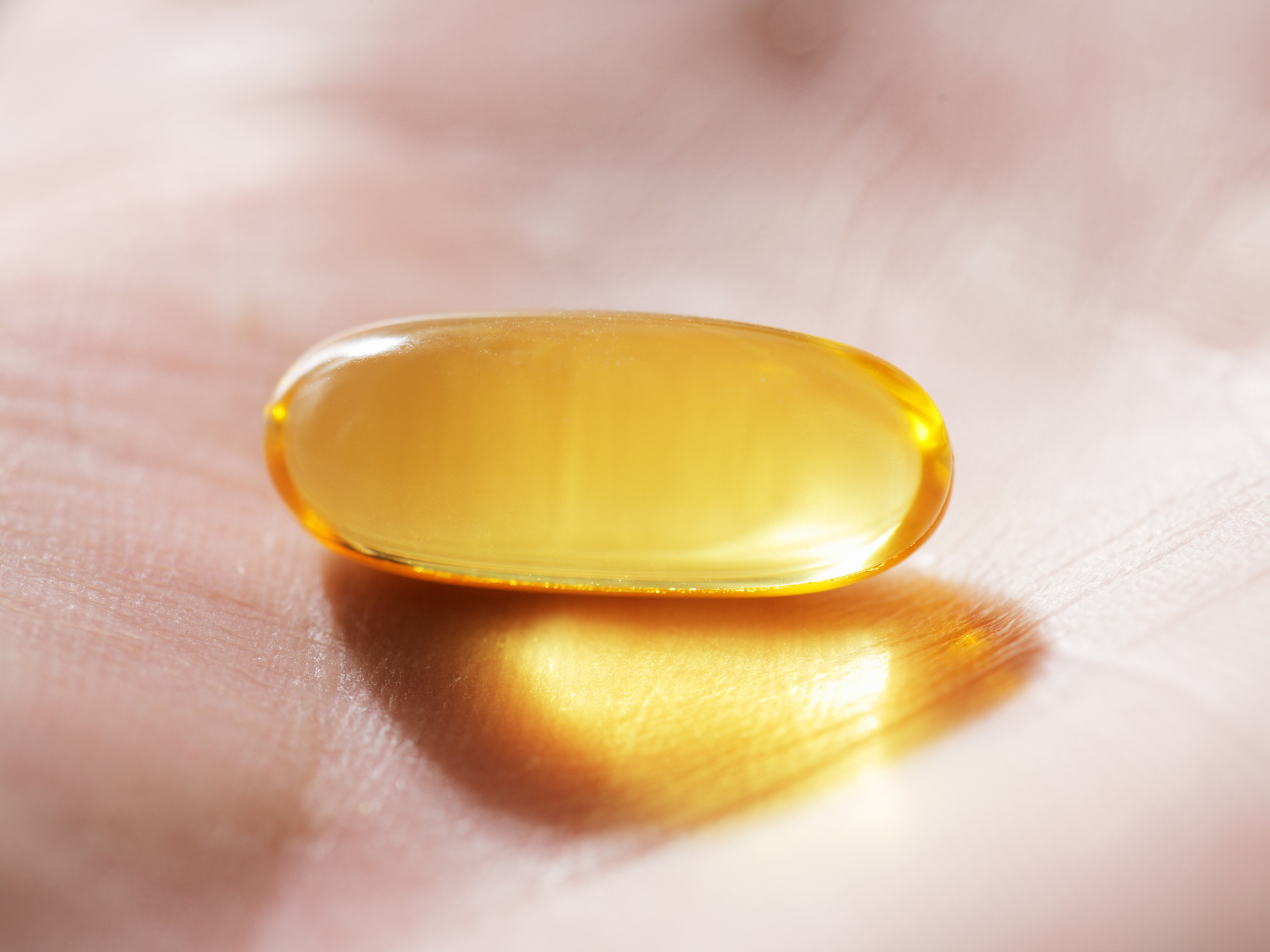Get Easy Health Digest™ in your inbox and don’t miss a thing when you subscribe today. Plus, get the free bonus report, Mother Nature’s Tips, Tricks and Remedies for Cholesterol, Blood Pressure & Blood Sugar as my way of saying welcome to the community!
The omega-3 that stood up to aggressive breast cancer

Did you know that chronic inflammation increases your risk for cancer?
You’ve probably heard that before, but it’s still an alarming thought considering how many of us are chronically inflamed.
Chronic inflammation amplifies your cancer risk, because when your body is inflamed, it releases more DNA-damaging chemicals. The DNA damage caused by these chemicals results in cell mutations that could eventually lead to cancer.
Now, chronic inflammation has a lot of causes. It can be caused by an ongoing infection, pollutants in your environment, chemicals in your home and other things. But a good amount of chronic inflammation comes from lifestyle choices, like eating inflammatory foods and staying sedentary.
Poor diet and lack of exercise also put you at risk for obesity, which increases your risk of chronic inflammation and cancer even more. Take breast cancer, for example…
Research shows that when you become obese, the fat tissue in your breasts changes. It becomes inflamed. And the pro-inflammatory immune cells that cause these breast tissue changes also trigger unnatural cell reproduction and tumor growth.
So what can you do to combat the chronic inflammation that contributes to cancer?
Eating healthy and exercising are the most crucial decisions you can make in the fight against inflammation and cancer. But you can also turn to a certain supplement for extra inflammation-fighting support…
Omega-3s.
Omega-3s are one of the most valuable weapons we currently have against cancer-causing inflammation. But recent research shows there’s one type that’s a lot more effective than any other…
Fish oil delivers breast cancer protection
Researchers from the University of Guelph in Canada confirmed that omega-3s are an effective way to fight the chronic inflammation that fuels breast cancer. But they also found that one source of omega-3s is substantially more effective.
In their study, researchers compared the effect of omega-3s from plants and omega-3s from fish on mice with breast cancer. Plants like flax, soy, canola and hemp contain a type of omega-3 fatty acid called a-linolenic acid (ALA). Fish, however, contain the omega-3 fatty acids eicosapentaenoic acid (EPA) and docosahexaenoic acid (DHA).
The study included mice who were prone to an aggressive type of breast cancer called HER-2, which affects 25 percent of women. These mice were exposed to either omega-3s from plants or omega-3s from fish, starting when they were still in their mothers’ wombs.
In the end, mice that were exposed to omega-3s from fish fared far better in the fight against breast cancer.
Related: The weight-reducing, heart-guarding food you’re not eating
They had 30 percent less tumors. And the tumors they did have were 60 to 70 percent smaller. Based on these numbers, researchers say omega-3s from fish are eight times more effective at preventing breast tumor development and growth than omega-3s from plants.
Of course, omega-3s from plants did lower breast cancer risk some. It just took a larger amount of plant-based omega-3s to have the same effect.
But whether you get your omega-3s from plants or fish, they both work the same way. They fight inflammation, turn on genes that give you a powerful immune system and block tumor growth.
“Seeing the significant benefits omega-3s can have in combatting a highly aggressive form of breast cancer means omega-3s will likely be beneficial for other types of cancer,” said study author Professor David Ma.
Get enough omega-3s
So if you want to prevent breast cancer, it’s time to get serious about your fish oil consumption…
Researchers say that three servings of fish per week is about what mice received in the study. Fish that contain the most omega-3s include:
- Wild Alaskan salmon
- Arctic char
- Atlantic mackerel
- Sardines
- Anchovies
- Rainbow trout
- Pacific Halibut
If you’re not a fan of fish, you can buy a fish oil supplement. Nowadays, they don’t taste fishy at all, and they give you a powerful dose of those inflammation-fighting omega-3s.
If you’re vegetarian, you’ll have to go out of your way to eat lots of omega-3 rich foods like walnuts, olive oil and flaxseed, because the ALA found in these foods isn’t as powerful as the EPA and DHA found in fish. There are also vegetarian DHA supplements that get their DHA from microalgae, so you might want to look into those. Whatever your food philosophy, make sure you get enough of these healthy fatty acids in your daily diet.
Editor’s note: Discover how to live a cancer prevention lifestyle — using foods, vitamins, minerals and herbs — as well as little-known therapies allowed in other countries but denied to you by American mainstream medicine. Click here to discover Surviving Cancer! A Comprehensive Guide to Understanding the Causes, Treatments and Big Business Behind Medicine’s Most Frightening Diagnosis!
Sources:
- Chronic Inflammation — National Cancer Institute. Retrieved January 31, 2018.
- Study details a link between inflammation and cancer — MIT News. Retrieved January 31, 2018.
- AL-Jawadi, et al. “Protective properties of n-3 fatty acids and implications in obesity-associated breast cancer.” — The Journal of Nutritional Biochemistry. March 2018; 53: 1-8.
- Choose Omega-3s from fish over flax for cancer prevention, study finds — MedicalXpress. Retrieved January 31, 2018.
- 13 Best Fish: High in Omega-3s – and Environment-Friendly — U.S. News & World Report. Retrieved January 31, 2018.












